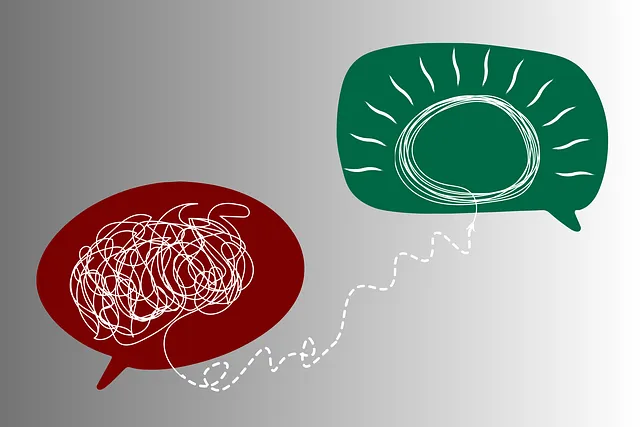The media's portrayal of mental illness greatly influences public perception, with nuanced storytelling reducing stigma and fostering empathy. Kaiser Permanente's innovative initiative, a dedicated mental health phone line in Superior, offers immediate support, education, and self-care guidance based on Mind Over Matter principles. By encouraging open conversations about mental wellness and promoting emotional intelligence through compelling narratives, media can empower viewers to prioritize their well-being and reduce trauma effects. Additionally, communities can create supportive environments that improve overall mental health for all individuals by addressing media impact and advocating for self-care routines.
In today’s media landscape, accurate representation of mental illness is crucial for fostering understanding and reducing stigma. This article explores how media portrayal impacts public perception of mental health, highlighting challenges and solutions. We delve into Kaiser Permanente’s innovative initiative: a dedicated phone line offering support and education. Additionally, we present strategies to enhance positive mental illness representation in media, emphasizing the importance of accurate, sensitive, and diverse storytelling for superior mental health resources.
- Understanding the Impact of Media Portrayal on Mental Health Perception
- Kaiser Permanente's Initiative: A Phone Line for Support and Education
- Strategies to Enhance Positive Mental Illness Representation in Media
Understanding the Impact of Media Portrayal on Mental Health Perception

The media’s portrayal of mental illness significantly influences public perceptions and understanding of various psychological conditions. This representation can either perpetuate harmful stereotypes or foster empathy and awareness, impacting how society approaches and supports those dealing with mental health challenges. For instance, a lack of nuanced storytelling may contribute to the stigmatization of specific disorders, making it harder for individuals to seek help. Conversely, media that presents accurate, complex characters grappling with mental illness can encourage viewers to be more understanding and supportive.
In light of this, initiatives like Kaiser Permanente’s mental health phone services play a vital role in promoting better access to care and resources. These services not only offer immediate support but also contribute to the broader goal of normalizing conversations around mental wellness. By addressing the impact of media through such interventions and encouraging self-care routine development, communities can work towards healing and improving overall mental health. This, in turn, helps reduce the effects of trauma and fosters a more supportive environment for everyone, regardless of their personal struggles.
Kaiser Permanente's Initiative: A Phone Line for Support and Education

Kaiser Permanente has taken a significant step forward in addressing mental health concerns by launching an innovative initiative—a dedicated phone line offering support and education to those in need. This service, designed with the understanding that access to immediate assistance is crucial, provides a safe space for individuals seeking guidance on various mental health topics. Trained professionals offer not just crisis intervention but also valuable insights into managing conditions like anxiety, depression, and stress-related issues.
The phone line incorporates Mind Over Matter principles, promoting self-care and resilience. It facilitates open conversations about mental wellness, breaking down societal barriers. Moreover, it caters to healthcare providers looking for burnout prevention strategies, offering them the tools to enhance their own well-being while better serving their patients. Social skills training is also incorporated, empowering users with effective communication techniques for navigating mental health discussions.
Strategies to Enhance Positive Mental Illness Representation in Media

To enhance positive mental illness representation in media, creators can adopt several strategies that promote accuracy and empathy. Firstly, incorporating diverse characters with various mental health conditions challenges stereotypes and fosters understanding. These characters should be nuanced, multi-dimensional, and portrayed by individuals who have personal experience with the condition, similar to how actors with physical disabilities often play disabled roles. Secondly, media platforms should collaborate with mental health experts, such as psychologists or organizations like Kaiser Permanente (with their mental health phone number offering support), to ensure factual representation.
By weaving in emotional intelligence and showcasing characters building resilience, the narrative can effectively communicate that recovery is possible. This approach not only reduces stigma but also encourages viewers to seek help when needed. Moreover, highlighting the importance of mind over matter principles through compelling storytelling can inspire others to navigate their mental health journeys with perseverance and hope.
In addressing the critical issue of mental illness representation, media plays a pivotal role. By understanding the profound impact of its portrayal on societal perceptions and mental health, we can initiate positive change. Kaiser Permanente’s initiative, offering a dedicated mental health phone line for support and education, is a commendable step forward. Furthermore, implementing strategic improvements in media representation, such as showcasing diverse narratives and promoting awareness, will foster a more inclusive and empathetic environment. With consistent efforts to enhance positive mental illness representation, we can ensure that media becomes a powerful tool in supporting superior mental health initiatives like Kaiser Permanente’s.






